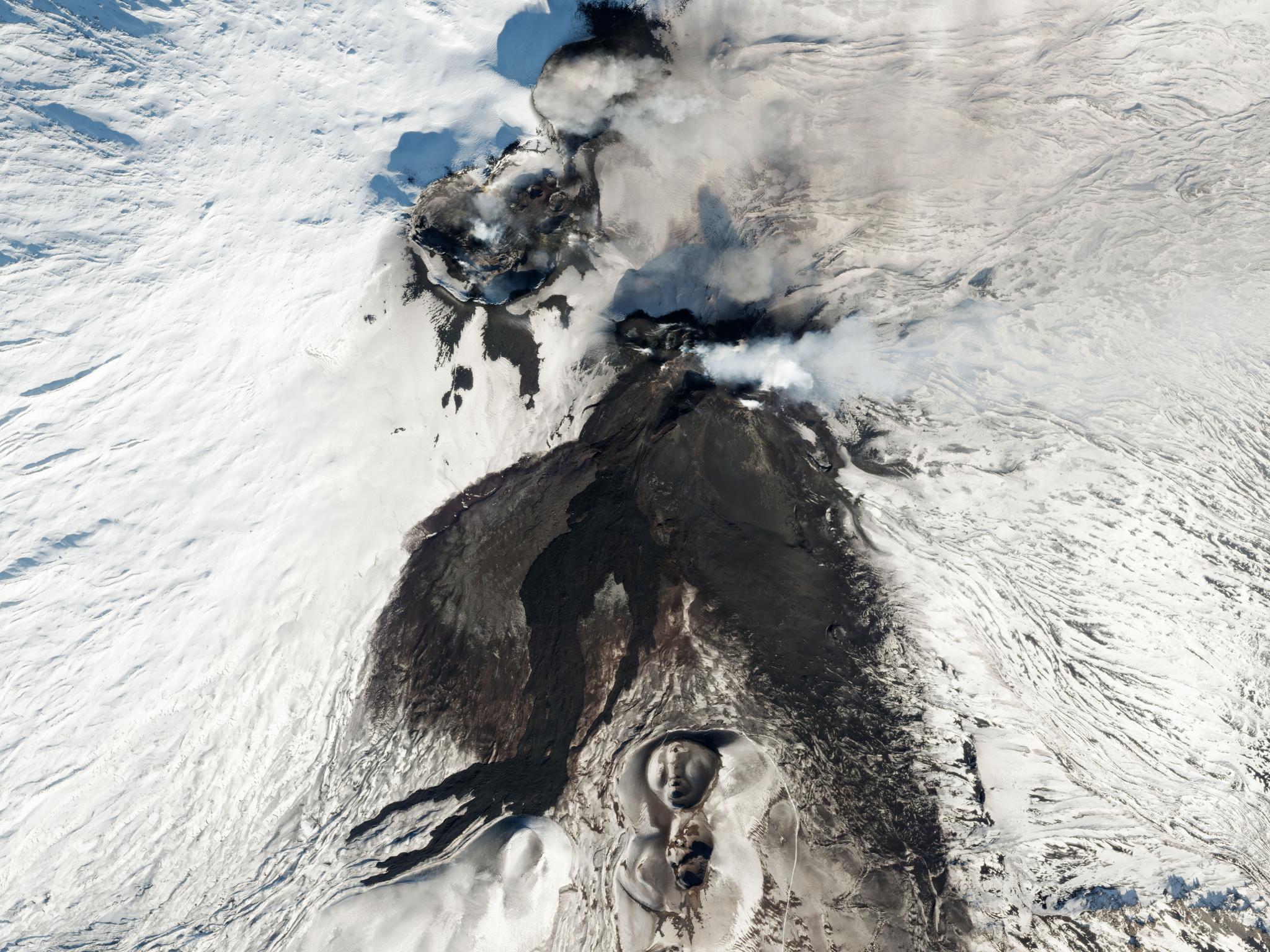Real Solutions to Real Problems - Connecting Earth Observation to the protection of Biodiversity

SkySat captures lave flows on Mount Etna volcano’s summit craters. © 2020, Planet Labs Inc. All Rights Reserved.
NewsThe EU Green Deal, Europe’s ambitious sustainability strategy, outlines a path forward to becoming the first climate neutral continent by 2050. In tandem, Europe has also launched a new 2030 Biodiversity Strategy which requires Member States to commit to important targets to restore biodiversity. Both initiatives are integral parts of Europe’s response to the current global climate and biodiversity crises. And both require proactive and continuous monitoring of progress towards the goals and objectives outlined in each initiative. As part of EU Green Week 2021, Planet convened a high level panel to discuss how the combination of frequent, high-resolution commercial satellite imagery and public Earth observation constellations can facilitate these visionary goals by tracking biodiversity loss and damage to our ecosystems. The panel included:
- Will Marshall, Co-Founder and the CEO of Planet
- Mauro Facchini, Head of the Earth Observation Unit, Directorate General Defence Industry and Space, European Commission
- Florika Fink-Hooijer, Director-General, Directorate-General for Environment, European Commission
- Indra den Bakker, Co-Founder and CEO, Overstory
- Andreas Dahl Jørgensen, Managing Director, Norway's International Climate and Forest Initiative
- Moderated by: Agnieszka Lukaszczyk, Senior Director, European Affairs, Planet
In order to meet these priority areas in the next decade we need to monitor and document progress. “What gets measured, gets acted upon,” said Florika Fink-Hooijer, the European Commission’s Director-General for Environment. “We have all the policy ideas ... we need to make sure that this legislation is implemented and enforced, is working, and has traction.” The panel highlighted key biodiversity areas that are currently being measured including tropical forests and agricultural yields and emphasized the need to expand this work throughout global ecosystems and the ocean. “Earth Observation data is a foundational tool to help [measure biodiversity] because it is wide-scale and consistent across the entire globe. It can provide dependable measurement systems,” Planet Co-founder and CEO Will Marshall explained. Discussions centered around the complementary nature of the innovative datasets NewSpace companies are now producing and Europe’s Copernicus satellites. Copernicus data and services power a myriad of societal benefits, none more critical than in the Commission’s top two priority areas: the Green Deal and digital transformation. However, public data sources cannot achieve these targets alone. Environment Director-General Fink-Hooijer added a note of caution about the limitations of spatial data, and the need for additional in situ monitoring. The monitoring pace and level of detail required can only be achieved by joining forces with commercial imagery providers, like Planet. "This kind of cooperation [between the public and private sector], in my view, is to the benefit of the whole community, and when I say community, I'm thinking globally,” said Mauro Facchini, Head of the Earth Observation Unit at DG DEFIS. There is enormous potential for public and private actors to work together to reverse biodiversity loss. We’ve seen great success using this model under Norway’s International Climate and Forest Initiative (NICFI). This pioneering coalition of public-private partners is supporting efforts to stop deforestation and save the world’s tropical forests. We believe we can replicate this work in forests across Europe. “This imagery can help governments with land-use planning decide who can do what, where. This is not just about forests, it’s about the whole landscape of economic activity,” said NICFI’s Managing Director Andreas Dahl Jørgensen. He noted the variety of stakeholders benefiting from public high resolution imagery range from local farmers looking to invest in productivity, indigenous communities seeking increased justice for their land-rights, and supply chain managers ensuring the sustainability of their markets. The role of the private sector does not end with just the provision of data. European startups such as Overstory have an important part to play in making the data actionable for different stakeholders. In this respect, Europe has the enormous opportunity not only to lead globally the green transition but also the market for the provision of enabling data solutions. As Overstory CEO Indra den Bakker said, “It’s not just the right thing to do, but it's also a huge business opportunity.” Overstory helps utility customers mitigate wildfires and power outages by improving the safety and reliability of the transmission and distribution system. Supporting such operations enables companies to remain resilient to environmental change and sustain their work in the future. “The fundamentals are that we have tools at our fingertips that can accelerate these Green Deal type policy initiatives much faster than even we thought just a few years ago. That is just tremendously exciting,” said Will Marshall. At Planet, we firmly believe that you can’t manage what you can’t measure. We see Earth Observation as a foundational tool to ensure the sustainable transition is data-driven and evidence based. This work can feed measurement systems that are consistent across countries to protect ecosystems globally and transition to a sustainable society. To learn more, watch the full webinar and get in touch to learn more about Planet’s solutions.

Ready to Get Started
Connect with a member of our Sales team. We'll help you find the right products and pricing for your needs.

